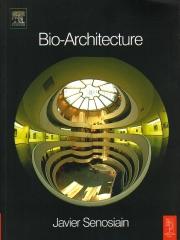Bio-Architecture studies the natural principles of animal and human constructions from several different perspectives, and presents a great part of the knowledge that gives origin and shape to built form.
Organic architecture offers a design approach arising from natural principles, bringing us back to local history, tradition, and cultural roots to give us built forms which are in harmony with nature. It also shows how architects can take advantage of the resources that contemporary technology has placed within our grasp.
Bio-Architecture is a unique book that studies the natural principles of animal and human constructions from several different perspectives and looks at what gives origin and shape to built form. The text gives an informative, inspiring overview of the drive toward organically informed design both intrinsically and aesthetically using a wide variety of international examples.
Javier Senosiain is an architect and an historian. He has pursued his interest in Organic Architecture across the globe drawing parallels between Buckminster Fuller's Geodesic dome and the spider's web; between Santiago Calatrava's Cathedral of St John in NY and the roots of a tree. Where nature has inspired form, Senosiain has made a career of analyzing and applying the principles he sees in some very creative writing and architecture.
Contents
Introduction Chapter One. Nature: Inspiration of Man. Chapter 2 Function in Nature. Chapter 3 Space in Nature. Chapter 4 Structure in Nature. Chapter 6 Shape in Nature. Chapter 7 Snails, Clams, Cephalopods. Chapter 8 Man: His Space throughout the ages. Chapter 9. Vernacular Architecture. Chapter 10 Arches, Vaults, Domes. Chapter 11 The Modern City. Chapter 12 The Organic: Man's Natural Space. Chapter 13 Organic Architecture. Chapter 14 The Search for Space. Chapter 14 The Organic Habit. Epilogue. Bibliography.

(0 Comentarios)